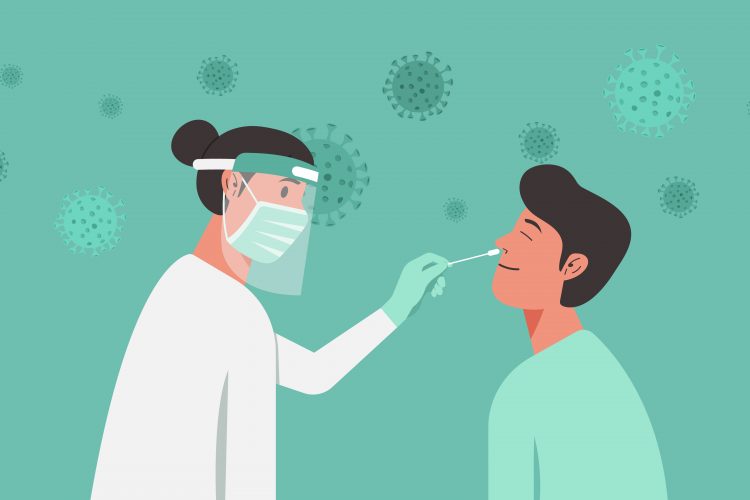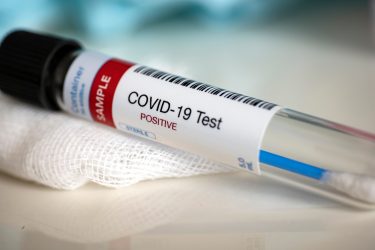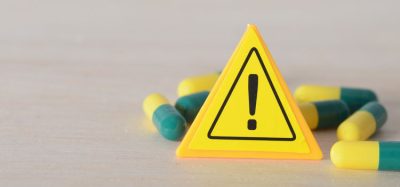Transforming pathology with RFID could save the NHS millions
Posted: 16 September 2020 | Gillian Ewers (PragmatIC) | No comments yet
This article explores how implementing Radio Frequency Identification (RFID) technology could help NHS pathology services cope with the challenges of the COVID-19 pandemic.


During the COVID-19 pandemic, the UK’s National Health Service (NHS) has had to quickly ramp up resources and testing for the virus. Although the service had practised for incidents of this type for many years, the already-stretched system found itself challenged by the sheer scope and severity of the situation. Now, more than ever, innovators need to unite in developing solutions to help the health service. Any technologies or processes that improve efficiencies or remove obstacles will enable the NHS to navigate through this crisis and beyond.
One area where advances in technology could play a pivotal role is pathology. The response to COVID-19 has resulted in an additional 200,000 tests per day for a system that was already running at full pelt. It is not only patients that need to be tested, it is critical that the million plus NHS front-line staff are also tested each week so they can be kept safe and are able to perform their essential tasks. What is needed is a system that can turn results around quickly and efficiently without compromising on accuracy or safety.


In addition to providing vital support to NHS and medical organisations dealing directly with patients, pathology teams have also been under extreme pressure due to the demanding targets the government has set around testing the wider public for the virus. With ‘track and trace’ and the increasing need for COVID testing, the scrutiny of pathology labs has increased significantly. Any inaccuracies, delays or supply chain issues not only cause problems for the supply chain but also have an impact on the entire medical programme. At this crucial time, any technological options that could support pathology processes and boost their efficiency should be investigated.
Challenging times
According to the Royal College of Pathologists (RCP), there are currently 105 hospitals in England providing pathology services, carrying out over one billion tests every year (a pre-COVID-19 figure). The logistics involved in moving, storing and analysing these samples are complex and every misplaced sample or late test result can cause problems. Professor Jo Martin, President of the RCP, stated: “Our members have been working extremely hard to ramp up testing for COVID-19. Virologists and laboratory staff have the expertise to take on and manage at scale the additional testing needed. This is highly skilled work and they are responding brilliantly, working long hours under great pressure to get this expansion in place.” However, despite the obvious skill and effort that the pathology industry is displaying, there are inevitable strains on the system. Professor Martin added: “There have been significant challenges and barriers to increasing capacity for testing across all labs, not least due to issues with the supply chain for testing materials.”
Innovative technological solutions that enable pathology labs to run more efficiently could help ease this supply chain issue. There is also potential for huge financial savings for the NHS and improvements in patient outcomes. It also means that testing targets are more likely to be met, which will be instrumental in helping to understand and fight the pandemic. The challenge that faces all labs is managing capacity whilst not compromising accuracy. An important part of that is how samples are prepared for transportation to a lab. Traditionally, this has involved a lot of paperwork and manual processes, as a result, samples are sometimes not sent, lost, damaged in transit or barcodes on labels are compromised and deemed unreadable. Re-ordering a test may then be necessary, which results in a delay. During the COVID-19 pandemic, labs need to collaborate and work together across locations so accurate transport and tracking of samples is paramount.
RFID technology


One promising solution is using Radio Frequency Identification (RFID) technology. There are currently trials under way in the North East of a new sample transport system which includes RFID for automatic tracking. RFID can be added to every sample tube, giving each one a unique digital identity that can be read wirelessly. Therefore, each sample can be fully traced in real-time from the GP or ward, all the way through to the pathology lab. This removes problems with readability and also human errors. RFID technology is not new. It has been used for supply chain management in the apparel sector for some time, with considerable success, but previously the costs were too high for use in large volumes due to the cost of the conventional electronics involved. As a result of recent innovations this technology now has the potential to save the NHS millions every year.
If this global health crisis has shown us anything, it is the need to streamline processes to ensure the right items are delivered to the right places in the shortest possible time. It’s clear that we must accelerate the use of technology across the healthcare system to deliver solutions with long-term and life-changing benefits.
About the Author
Gillian Ewers is the Vice President of Marketing at PragmatIC.
Related topics
Related organisations
Royal College of Pathologists (RCP), UK National Health Service (NHS)









